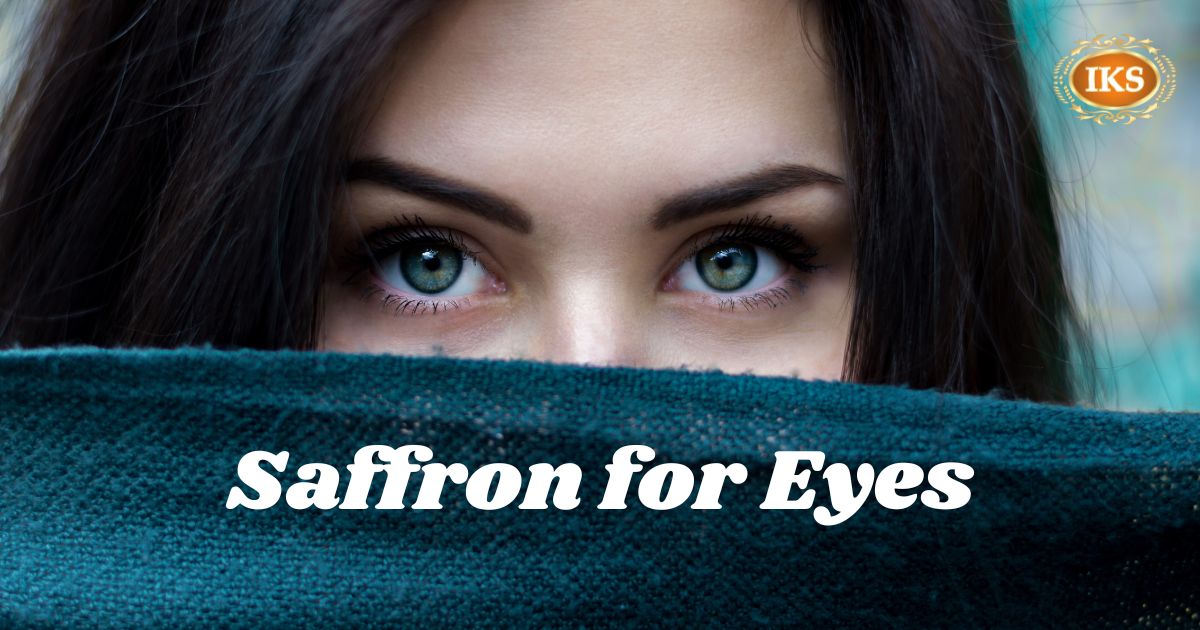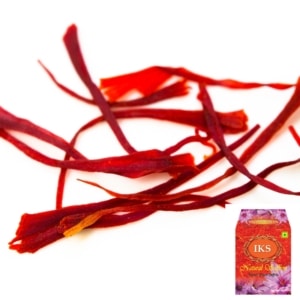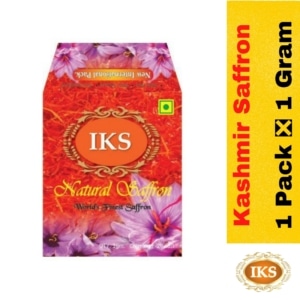Saffron for Eyes: A Natural Remedy for Vision Health (Eyesight)
Saffron for Eyes – Our eyes are a precious gift, allowing us to perceive the world around us. It is crucial to take care of our vision and maintain optimal eye health.
While there are various ways to support healthy eyesight, one natural remedy that has gained attention is saffron. Saffron (Kesar), a vibrant and aromatic spice, has been used for centuries in culinary and medicinal practices.
In recent years, research has shown its potential benefits for eye health. In this article, we will delve into the topic of saffron for eyes and explore its properties, potential benefits, and recommended usage.
1. What is Saffron?
Saffron, scientifically known as Crocus sativus, is a spice derived from the flower of the saffron crocus.
It is native to Southwest Asia and has a rich history of use in traditional medicine and cooking.
The spice is obtained by carefully handpicking the stigmas, the vivid red-orange threads found within the flower.
Due to its labor-intensive harvesting process, saffron is one of the most expensive spices globally.
2. Saffron’s Nutritional Profile
Saffron is not only known for its distinct flavor and aroma but also for its impressive nutritional composition.
It contains several essential vitamins and minerals, including vitamin C, vitamin A, riboflavin, niacin, and potassium.
Saffron is also a rich source of carotenoids, such as crocin and safranal, which contribute to its vibrant color and potential health benefits.
3. The Role of Saffron in Eye Health
3.1 Antioxidant Properties
Saffron is a potent source of antioxidants that help protect our cells from damage caused by harmful free radicals.
Antioxidants play a vital role in maintaining overall health and are particularly beneficial for eye health.
By neutralizing free radicals, saffron’s antioxidants may help prevent oxidative stress and its associated effects on the eyes.
3.2 Protection Against Age-Related Macular Degeneration (AMD)
Age-Related Macular Degeneration (AMD) is a leading cause of vision loss, especially among older adults.
Research suggests that saffron may have a protective effect against AMD due to its antioxidant and anti-inflammatory properties.
These properties could potentially reduce the risk of developing this degenerative eye condition.
3.3 Reduction of Retinal Damage
The retina is a critical part of the eye responsible for converting light into visual signals.
Saffron has been studied for its potential to protect the retina from damage caused by various factors, such as exposure to bright light and oxidative stress.
The active components in saffron, such as crocin and safranal, are believed to contribute to this protective effect.
4. Studies on Saffron and Eye Health
4.1 Clinical Trials and Results
Several clinical trials have investigated the effects of saffron on eye health, particularly in relation to AMD and retinal diseases.
While research is ongoing, initial findings have shown promising results.
Studies have demonstrated improvements in visual acuity, contrast sensitivity, and overall retinal function in individuals supplemented with saffron.
4.2 Dosage and Recommendations
The appropriate dosage of saffron for eye health varies among individuals.
However, studies have typically used a daily dosage ranging from 20 to 30 milligrams of saffron extract.
It is important to consult with a healthcare professional before starting any new supplement regimen to determine the appropriate dosage for your specific needs.
5. Other Potential Benefits of Saffron
In addition to its potential eye health benefits, saffron has been associated with other positive effects on the body.
While further research is needed, preliminary studies have suggested that saffron may have mood-enhancing properties, act as an anticancer agent, and improve cognitive function.
6. How to Use Saffron for Eye Health
6.1 Dietary Incorporation
One way to incorporate saffron into your routine is by using it in cooking.
Saffron adds a unique flavor and color to dishes, making it a delightful addition to various recipes.
However, it’s important to note that saffron’s concentration of active compounds is higher in supplement form, which may be more beneficial for targeted eye health benefits.
6.2 Saffron Eye Drops
Saffron eye drops are another option for those seeking to support their eye health.
These drops typically contain saffron extract and are applied directly to the eyes.
However, it is essential to consult with an eye care professional before using any eye drops or supplements to ensure safety and suitability.
6.3 Precautions and Side Effects
While saffron is generally considered safe for most people when used in moderation, it may cause side effects in some individuals.
These side effects can include allergic reactions, digestive issues, and changes in appetite.
Pregnant women should exercise caution and consult with their healthcare provider before using saffron supplements or incorporating saffron into their diet.
7. Combining Saffron with Other Eye-Friendly Nutrients
To maximize the potential benefits for eye health, it is advisable to combine saffron with other nutrients known to support vision.
Nutrients such as lutein, zeaxanthin, omega-3 fatty acids, and vitamins C and E have all been linked to eye health.
A well-rounded diet that includes these nutrients, along with saffron supplementation if recommended, can contribute to maintaining optimal vision.
Conclusion – Saffron for Eyes
Saffron, with its vibrant color and unique flavor, goes beyond being just a culinary delight.
Its potential benefits for eye health have attracted scientific interest and ongoing research.
While saffron cannot replace proper eye care or medical advice, incorporating saffron into a healthy lifestyle may support overall vision health.
Remember to consult with a healthcare professional before making any significant changes to your diet or starting any new supplements.















